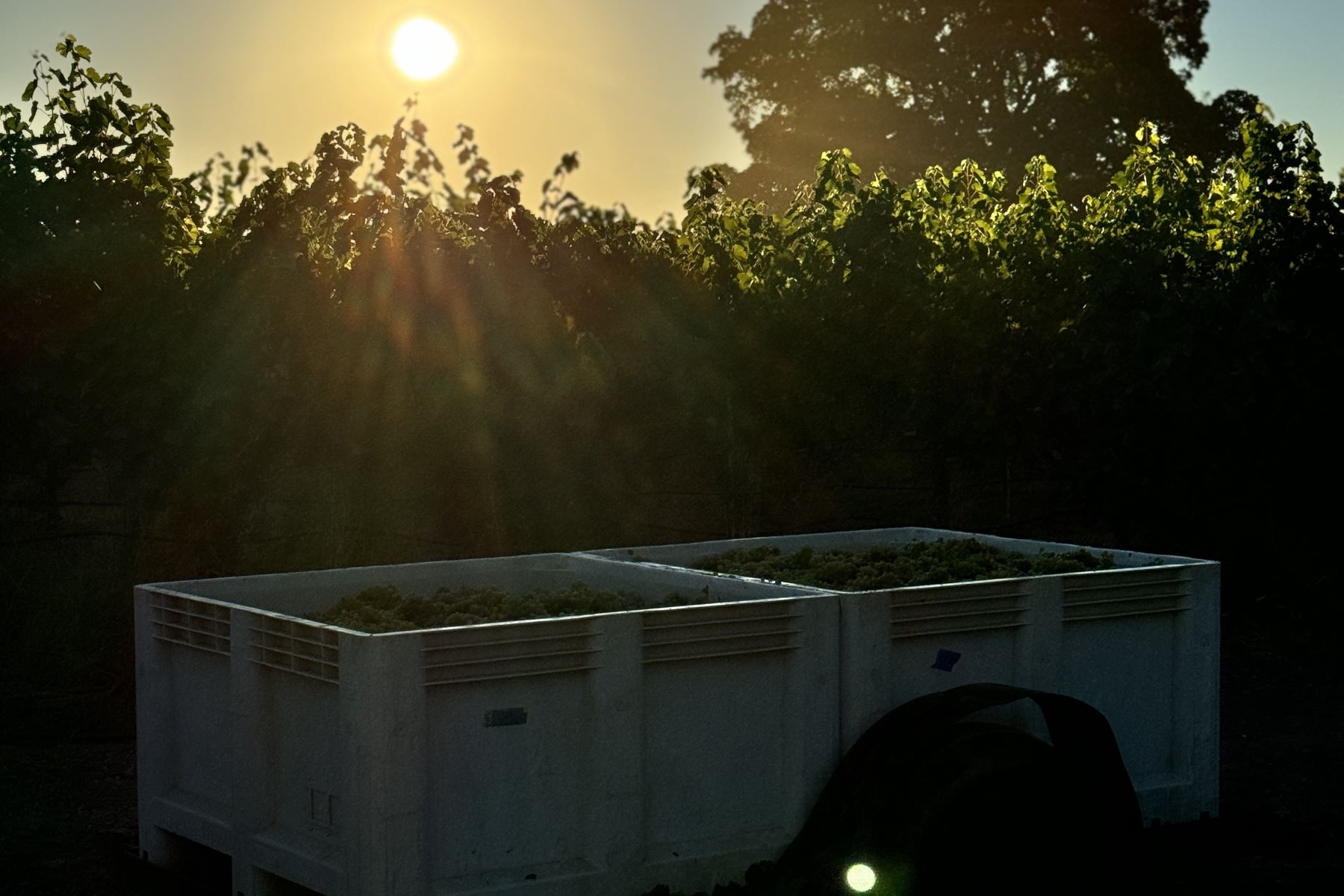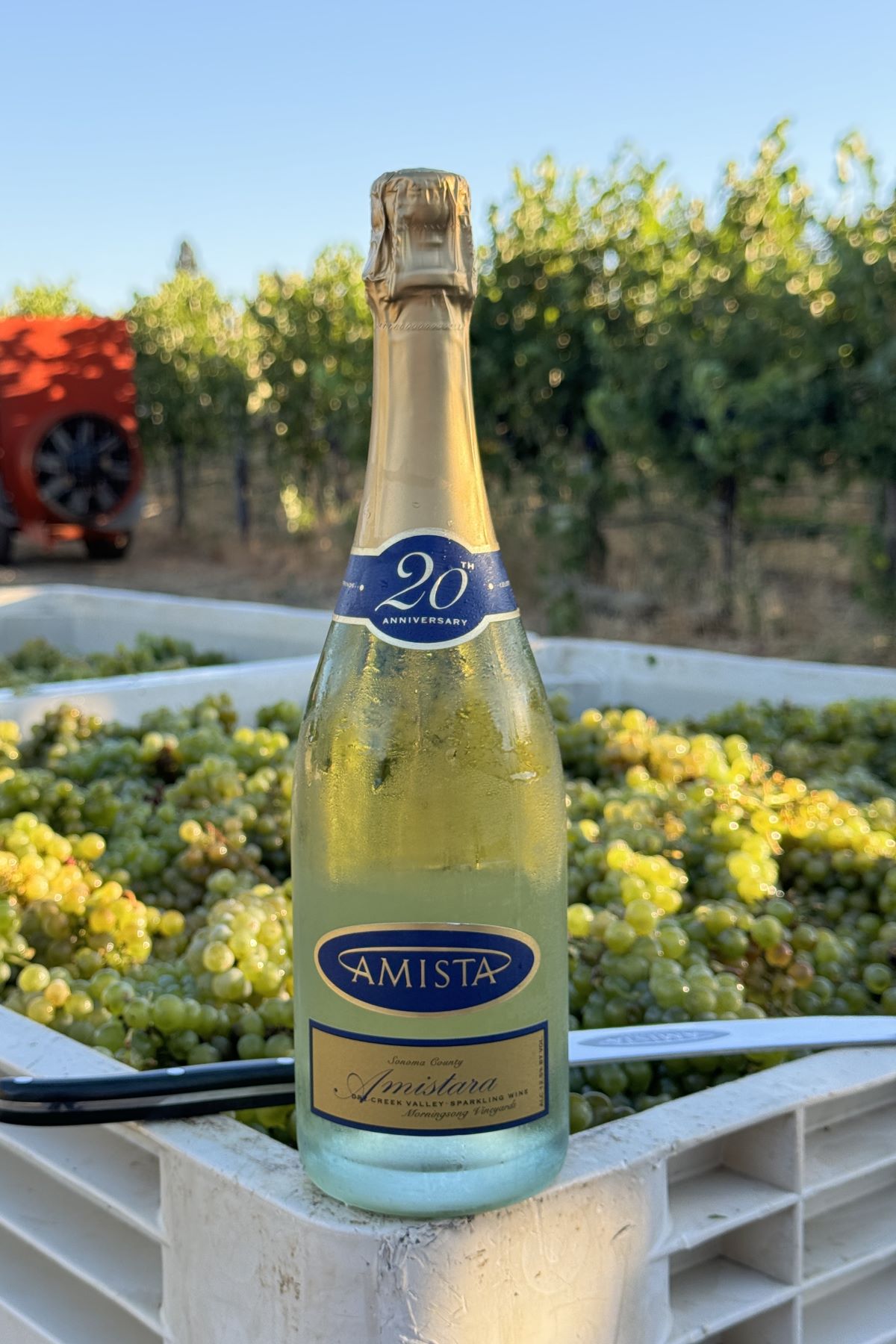From Struggling Vines to Certified Organic: Our Journey at Amista Vineyards
How We Almost Destroyed Our Vineyards...
…and brought them and our wines back to life with organic farming.
At Amista, "making friends" is more than our name, it's a way of life. We extend that friendship to the earth through our deep commitment to sustainable winegrowing. During Earth Month this May, our winemaker Ashley Herzberg and I invite you to celebrate with us and learn more about our continuing journey toward a healthier, more sustainable vineyard in the heart of Dry Creek Valley.
Reclaiming Our Land: A Turning Point in Vineyard Stewardship
When Ashley joined Amista in 2011, she inherited vineyards that were struggling. At the time, Mike and I had leased our estate Morningsong Vineyards to a vineyard management company. It seemed like a smart decision—we avoided farming costs and received a portion of the profits when the grapes were sold.
But we soon realized we had made a mistake.
The lessee prioritized yield and profit, farming with minimal investment and pushing the vines to produce as many tons of fruit as possible. This practice led to a slow but steady decline in the health of our soil, our vineyards—and ultimately, the quality of our wines.
Ashley helped us see that if we wanted to grow better grapes and make wines that reflect the beauty of our land, we needed to make a change. Although it took several years to negotiate the end of the lease, we finally took back control of our estate in 2015.
Healing the Vines: A New Era of Vineyard Management
Once we were back in charge, parts of the vineyard were in such poor condition that we feared we’d have to replant entire blocks. But after just one year of thoughtful farming under Ashley’s leadership, we began to see signs of recovery. The vines looked healthier. The soil was richer. And the winemaking process improved.
One early change Ashley noticed was in our Chardonnay. For the first time in years, the wine moved easily through malolactic fermentation, the natural process that transforms tart malic acid into softer lactic acid. In the past, this had been a struggle.
The culprit? Sprays used in conventional farming had likely disrupted the natural balance of the vineyard, interfering with fermentation.
Native Yeasts, Natural Flavors, and Healthier Soil
As the vineyard came back to life, Ashley began experimenting with native yeast fermentation—a process that depends on the healthy microbial life present in the vineyard. The results were exciting.
“You get more nuance, more layers of flavor,” she explained. “Commercial yeast gives one consistent character. But native fermentation can involve up to a thousand different yeast strains by the end. That adds complexity and a true sense of place.”
Thanks to healthier soil and vines, she no longer needed to add nitrogen supplements during fermentation. “Now, the vineyard provides what the wine needs naturally,” she said.
Drought Resilience and Regenerative Practices
Our shift to sustainable vineyard practices came just in time. As drought years became more frequent, we realized that healthy vines were far better equipped to survive—and even thrive—under stress.
One big change was stopping the practice of discing every row to remove weeds. Instead, we began planting cover crops to retain moisture, enrich the soil, and foster biodiversity. These practices helped our vineyards become more resilient, holding onto precious water and nutrients through increasingly dry seasons.
From Recovery to Certification: Becoming an Organic Vineyard
Restoring an unhealthy vineyard is like nursing a patient back from a long illness—it takes time, care, and patience. First, we stopped the decline. Then we focused on building long-term health.
That commitment paid off in August 2024, when our Morningsong Vineyards received organic certification from CCOF (California Certified Organic Farmers). It was a moment of immense pride. We toasted the harvest of our first certified organic grapes with a bottle of Amistara, a special sparkling Blanc de Blanc, created to mark Amista’s 20th anniversary.
The Surprising Mindset Shift of Organic Winegrowing
When I asked Ashley what she’s learned that might surprise people, she talked about the change in thinking required to farm organically.
“For most of my career, I was taught to see weeds as competition—something that steals water from the vines. But now, I see a dead vineyard and think that soil is bare, lifeless, losing moisture, compacted, and starved of nutrients.”
That shift in mindset, she says, was just as important as the farming practices themselves.
Celebrate Earth Month with Amista
We’re proud of the transformation of Morningsong Vineyards—from overworked and ailing to vibrant, organic, and thriving. As we celebrate Earth Month, we invite you to visit Amista Vineyards, taste the wines grown from our revitalized soil, and see for yourself what sustainable winegrowing looks like in action.
Together, we will raise a glass to a healthier planet and a more hopeful future.

